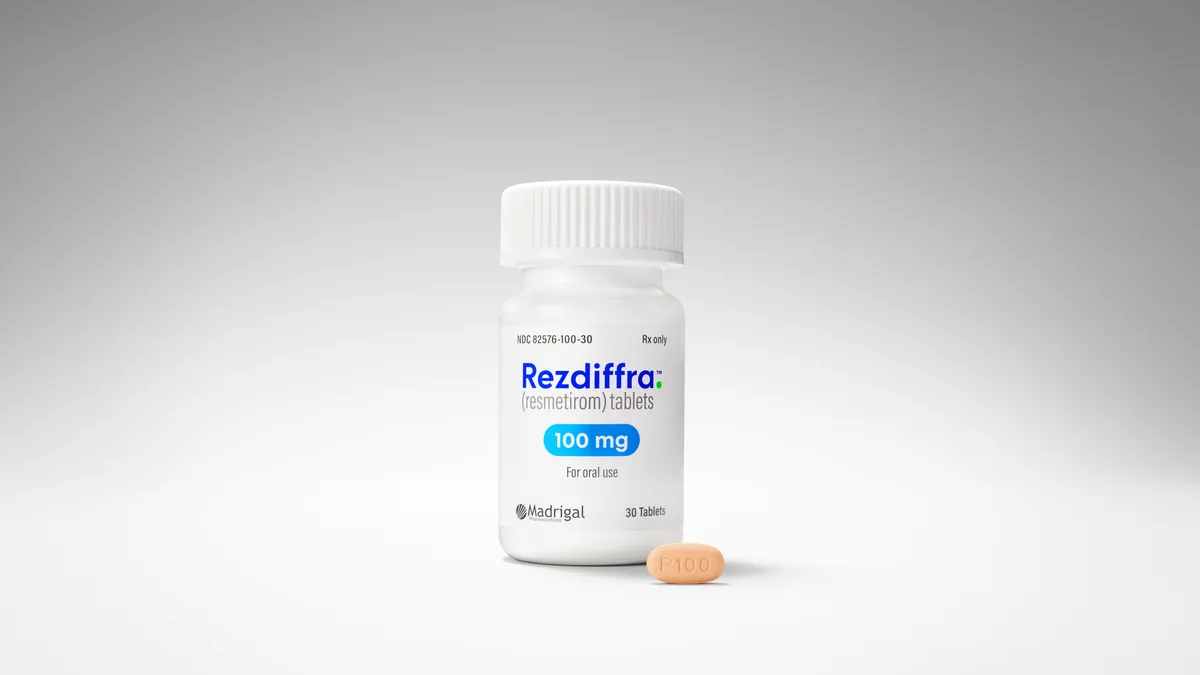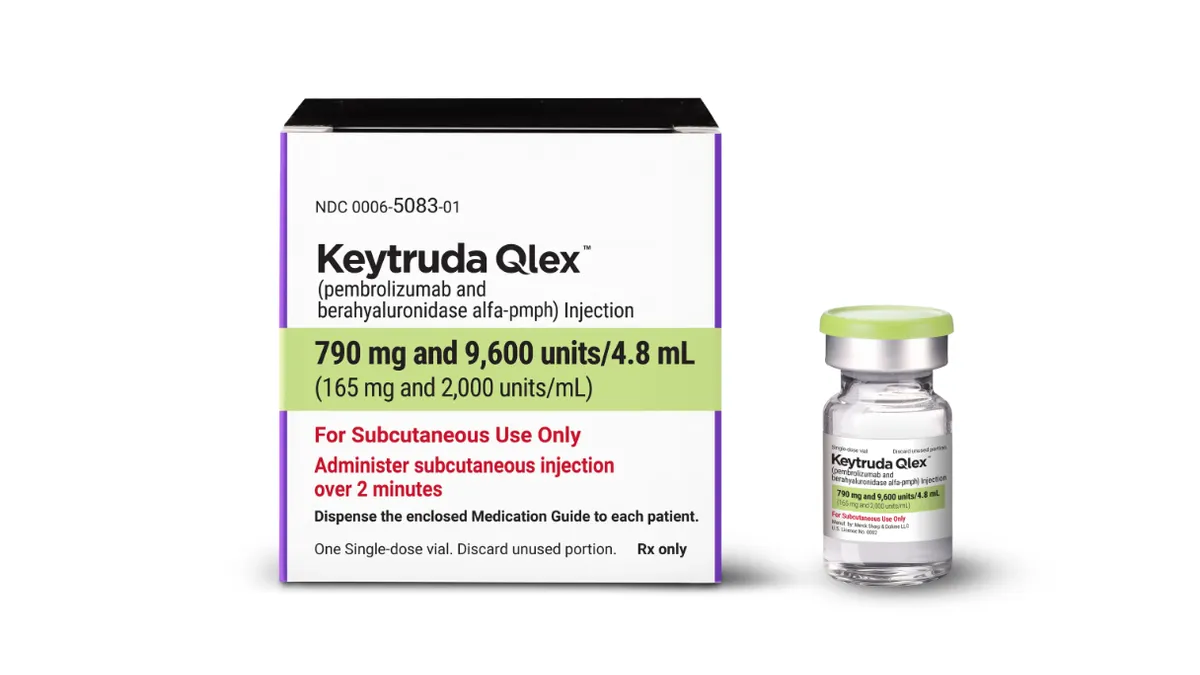The autoimmune disease market has been flush with new R&D and therapeutics in recent years. Plaque psoriasis, which impacts 125 million patients worldwide, has been one of the biggest targets, especially because there’s been little improvement over the longtime standard of care: steroid-based creams.

While steroid topicals can be an effective tool to help treat the raised, scaly skin plaques that are a hallmark of this condition, they’re hardly an ideal solution. If used for too long, they can lead to skin thinning, discoloration and other side effects, ruling them out as a long-term therapy or to treat sensitive areas of the body, including the face.
And although oral and injectable treatments are available for psoriasis, they too come with a long-list of potential serious side effects.
So, when the FDA announced in May that it had approved the first new topical treatment for the disorder in 25 years, the buzz was immediate.
“Following 20-plus years of minimal innovation in the topical psoriasis treatment space, I believe the approval of VTAMA cream is an important step in establishing a new treatment option for adults with mild, moderate and severe plaque psoriasis,” Mark Lebwohl, dean for clinical therapeutics at Mt. Sinai's Waldman Department of Dermatology and lead author of the phase 3 studies of VTAMA cream published in The New England Journal of Medicine, said in a statement.
Called VTAMA (tapinarof) cream 1%, the aryl hydrocarbon receptor agonist targets a protein that plays a role in regulating the immune system. Made by Dermavant, a subsidiary of Roivant Sciences, the tapinarof cream was acquired from GSK in 2018.
Dermavant is currently working on a mix of earlier and late-stage investigational medical dermatology therapeutics aimed not only at treating psoriasis, but other immuno-dermatological conditions, such as vitiligo, acne, atopic dermatitis and primary focal hyperhidrosis. VTAMA is the company’s first FDA-approved product.
Although VTAMA is making a splash on the psoriasis market, it likely won’t be alone for long. Arcutis Biotherapeutics’ has a roflumilast cream in the works which is a topical PDE4 inhibitor and is poised to receive FDA approval for use in adults and adolescents as soon as July.
The global market for autoimmune disease treatments is anticipated to reach more than $153 million by 2025. There are more than 80 diseases in this category including not only psoriasis but lupus, rheumatoid arthritis, type 1 diabetes and multiple sclerosis. Collectively, these diseases affect some 24 million people in the U.S. alone.
Here, Philip M. Brown, chief medical officer at Dermavant discusses VTAMA and what it means for people with plaque psoriasis.
PharmaVoice: How is the rollout for VTAMA going?
Phil Brown: VTAMA (tapinarof) cream is available by prescription from a healthcare provider at more than 88,000 licensed retail pharmacies across the U.S. For many companies, FDA approval happens one day, and launch happens about three months later. We received FDA approval on Monday, May 23rd and worked incredibly hard to ensure that the product was available in the market the following week.
What do you think the approval of this treatment means for patients with psoriasis?
Psoriasis impacts approximately eight million people in the U.S. and 125 million people worldwide. VTAMA was shown to be able to achieve complete disease clearance in up to 41% of patients in our long-term, open-label study, and once clear, patients were able to discontinue use of the product and enjoyed on average a four-month period before their disease re-flared. It also can be used anywhere on the body, including difficult to treat affected areas such as the face, groin and underarms, without limitations on duration of use, as demonstrated in clinical trials over 52 weeks. Together, this differentiated product profile simplifies the treatment regimen for patients and caregivers.
Is the treatment as effective or more effective than the steroid creams currently on the market?
No head-to-head studies are available to date to compare VTAMA cream with steroids. That said, we are confident in the potential of VTAMA cream, as the first and only steroid-free topical medication in its class in the U.S., to treat adults with plaque psoriasis. During our 12-week pivotal phase 3 studies (PSOARING 1 and PSOARING 2), VTAMA cream showed six times the efficacy compared to vehicle.
The product is different from steroids in that it can be used without restriction on body location or period of use, as demonstrated in clinical studies over 52 weeks. The trials also demonstrated durable, on-treatment results — where we saw no evidence of tachyphylaxis over 52 weeks — as well as a lasting remittive “off treatment” effect of about four months in the long-term, open-label extension study (PSOARING 3).
Have insurance companies set any guidelines for prescriptions, such as requiring that patients must try other treatments first, due to the cost of VTAMA?
VTAMA cream is priced comparably to other branded topical medicines for plaque psoriasis and lower than some orals and biologics for plaque psoriasis. We are committed to making VTAMA cream accessible to all eligible commercially insured patients through responsible pricing and a patient savings program. As part of our commitment to ensuring access to VTAMA cream, Dermavant launched a patient savings program called MyVTAMA for eligible patients.
What other treatments can people expect to see from Dermavant in the near future?
We believe VTAMA cream has the potential to make a real difference in the lives of adult patients and healthcare providers by improving plaque psoriasis — even when used long-term, as demonstrated in clinical trials over 52 weeks, and on sensitive skin and difficult-to-treat areas, such as the face, groin, and underarms. A separate phase 3 trial is evaluating VTAMA cream in children with plaque psoriasis.
Looking ahead, we continue to leverage VTAMA cream’s active ingredient, tapinarof, to understand how it might be applied to other conditions to help as many patients with dermatological issues as possible. In September 2021, we dosed our first patient in our pivotal phase 3 clinical trial program (ADORING 1 and ADORING 2) for VTAMA cream to treat patients aged 2 years and older with atopic dermatitis. We expect to receive topline phase 3 results in the first half of 2023.




















